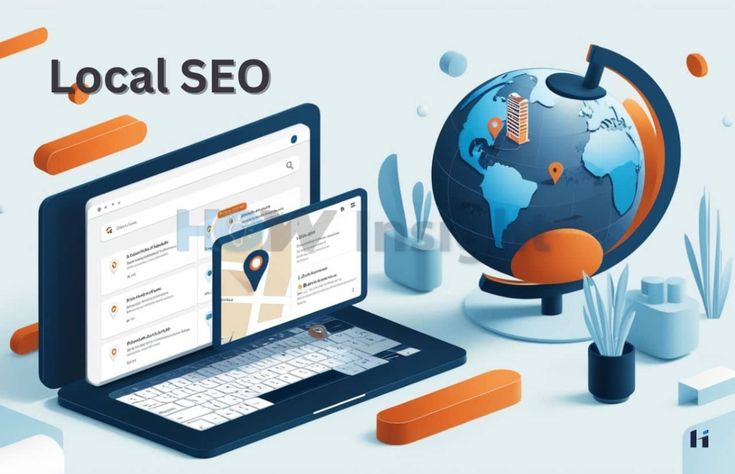Local SEO vs Traditional SEO: What’s the Difference and Why It Matters

Strong 8k brings an ultra-HD IPTV experience to your living room and your pocket.
In the digital marketing landscape, SEO (Search Engine Optimization) is a fundamental strategy that ensures businesses can be found online by their target audiences. However, not all SEO strategies are created equal. Two distinct approaches—Local SEO and Traditional SEO—serve different purposes and are tailored to specific business goals. Understanding the nuances between these two strategies can empower businesses to implement the most effective tactics and drive success.
✍️ Voice search queries like ‘find me a coffee shop nearby’ are on the rise. With local SEO strategies such as FAQ content and natural language optimization, you can capture these voice-driven leads and increase visibility in voice search results.
What Is Local SEO?
Local SEO is a specialized subset of SEO that focuses on optimizing a business’s online presence to attract more local customers. This strategy is particularly crucial for businesses with physical locations or those offering services within a specific geographic area.
Key components of Local SEO include:
Google My Business (GMB) optimization: Ensuring your GMB profile is accurate, complete, and active to appear in local search results.
Local keywords: Targeting search phrases that include geographic terms, such as “best coffee shop in Los Angeles.”
Citations: Listing your business in online directories like Yelp, Yellow Pages, and local review sites to establish credibility.
Customer reviews: Encouraging satisfied customers to leave positive reviews on Google and other platforms.
Localized content: Creating blog posts, landing pages, and other content focused on local topics and events.
Local SEO Service prioritizes visibility in local search results and Google’s local pack, a set of three featured businesses displayed prominently in searches with geographic intent.
What Is Traditional SEO?
In contrast, Traditional SEO focuses on improving a website’s visibility on a national or global scale. This approach is ideal for businesses that operate online without geographic limitations, such as e-commerce platforms or information-based websites.
Core elements of Traditional SEO include:
Keyword optimization: Targeting broad, high-volume keywords relevant to the industry.
On-page SEO: Enhancing elements like meta tags, header tags, image alt text, and content structure to improve rankings.
Backlink building: Acquiring high-quality links from reputable websites to boost domain authority.
Technical SEO: Optimizing site speed, mobile responsiveness, and crawlability for better user experience and search engine performance.
Content marketing: Publishing in-depth, engaging, and shareable content to attract organic traffic.
Traditional SEO aims to position a website at the top of search engine results pages (SERPs) for highly competitive, non-local queries.
Key Differences Between Local SEO and Traditional SEO
1. Geographic Focus
Local SEO is region-specific and prioritizes appearing in searches with local intent.
Traditional SEO targets a broader audience, often with no geographic qualifiers.
2. Keywords and Search Intent
Local SEO emphasizes long-tail keywords with location modifiers, such as “dentist near me” or “plumber in Chicago.”
Traditional SEO prioritizes short-tail, high-volume keywords, such as “best laptops” or “marketing tips.”
3. Search Results
Local SEO success is measured by appearances in Google’s local pack, maps, and localized SERPs.
Traditional SEO aims for top rankings in organic search results, often competing on a global scale.
4. Tools and Strategies
Local SEO leverages tools like Google My Business, local citations, and geotargeted ad campaigns.
Traditional SEO relies on keyword research tools, content management systems, and link-building outreach.
5. Performance Metrics
Local SEO tracks metrics like local pack rankings, online reviews, and customer footfall.
Traditional SEO evaluates metrics such as organic traffic, bounce rates, and backlinks.
Why Local SEO Matters for Small Businesses
For businesses that serve specific communities—like restaurants, retail stores, and service providers—Local SEO is indispensable. Research shows that:
46% of all Google searches have local intent.
76% of people who perform a local search visit a business within 24 hours.
28% of local searches result in a purchase.
By optimizing for Local SEO, businesses can connect with customers actively searching for their products or services nearby.
The Role of Traditional SEO in Online Success
Traditional SEO remains vital for businesses looking to scale their online presence beyond local boundaries. It helps build brand authority, drive organic traffic, and reach a global audience. For companies like SaaS providers, content creators, and international brands, investing in Traditional SEO ensures long-term visibility and customer acquisition.
Can Local SEO and Traditional SEO Work Together?
Yes, combining Local SEO and Traditional SEO can deliver exceptional results. Businesses with both physical locations and an online presence can benefit from targeting local audiences while expanding their reach globally. For example:
A restaurant chain can use Local SEO to attract nearby diners and Traditional SEO to rank for “best family restaurants” nationally.
An online retailer with local stores can optimize for “electronics near me” while driving nationwide e-commerce sales.
How to Choose the Right Strategy for Your Business
When deciding between Local SEO and Traditional SEO, consider:
Business model: Do you operate locally, globally, or both?
Target audience: Where are your customers located, and how do they search for your offerings?
Competition: Are your competitors focused locally, nationally, or internationally?
Budget: Local SEO typically requires fewer resources, making it more accessible for small businesses.
Conclusion
Both Local SEO and Traditional SEO play critical roles in a comprehensive digital marketing strategy. While Local SEO ensures visibility within your community, Traditional SEO enables you to compete on a larger stage. By understanding the differences and leveraging the right tactics, businesses can maximize their online impact and drive meaningful growth.
Note: IndiBlogHub features both user-submitted and editorial content. We do not verify third-party contributions. Read our Disclaimer and Privacy Policyfor details.







